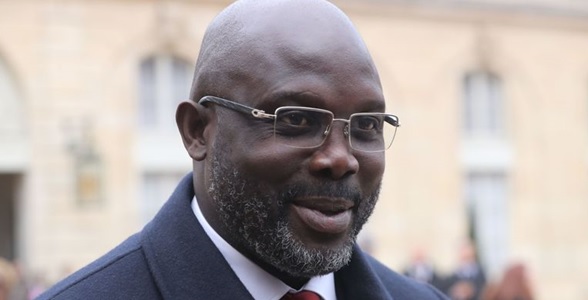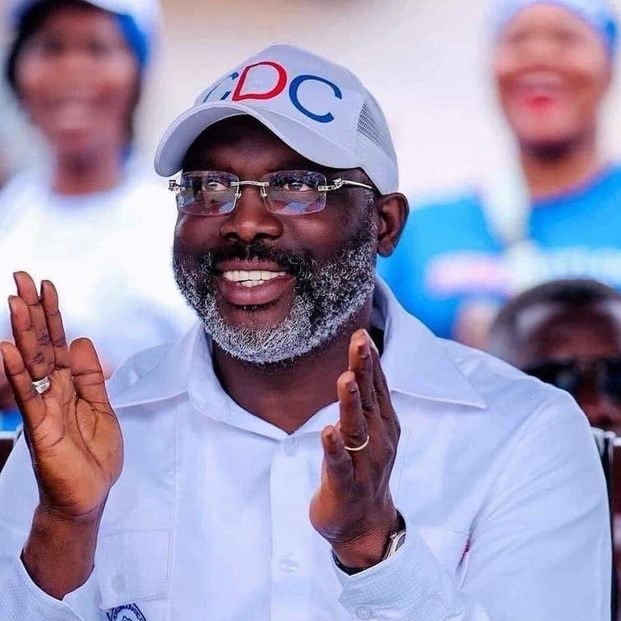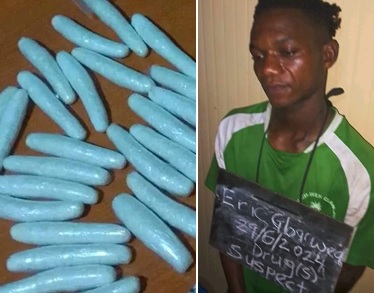MONROVIA – Months after the former ruling Coalition for Democratic Change (CDC) was defeated in a heavily contested presidential election by the Unity Party (UP), the political leader of the CDC, former President George Manneh Weah, has openly expressed his desire to contest again in the October 2029 presidential election. Mr. Weah made his declaration on a local radio station in Monrovia, stating, “I will be a candidate in 2029; I will answer the call of my people.” Socrates Smythe Saywon reports.
The CDC administration, under Weah’s leadership, faced significant accusations of bad governance and corruption, which contributed to its defeat in the 2023 presidential election. Several key factors were identified as reasons for the CDC’s loss, with poor economic performance, bad governace and corruption were the primary issues. The administration struggled to stimulate significant economic growth, resulting in high unemployment rates and low economic opportunities that left many voters dissatisfied.
Additionally, rising inflation and the increasing cost of living further exacerbated the economic difficulties, affecting the daily lives of ordinary citizens and eroding their purchasing power. The CDC was also plagued by multiple corruption scandals involving high-ranking officials, which severely damaged its credibility. Public perception of widespread corruption undermined trust in the government’s ability to manage resources effectively and equitably.
The CDC administration’s perceived lack of transparency and accountability in handling public funds and implementing policies further alienated voters who demanded cleaner governance. Inefficiencies in delivering essential public services such as healthcare, education, and infrastructure were also critical points of contention. Many voters felt that the quality of these services had not improved significantly during the CDC’s tenure. Bureaucratic delays, mismanagement, and lack of effective governance strategies contributed to the perception of an incompetent administration.
Widespread public discontent manifested in protests and social movements against the CDC administration. These movements mobilized significant portions of the population, voicing their frustrations and demanding change. Additionally, the CDC lost crucial support from influential political figures and groups that had previously backed the administration, weakening its base and making it more vulnerable to opposition challenges.
The opposition, led by Joseph Nyuma Boakai, capitalized on the CDC’s weaknesses by running a focused and effective campaign. They presented themselves as a viable alternative, promising to address the issues that the CDC had failed to manage. The opposition also successfully built coalitions with various political and social groups, expanding their support base and presenting a united front against the CDC.
Public sentiment and voting behavior played a significant role in the election outcome. A large portion of the electorate expressed a strong desire for change, believing that a new administration could better address the country’s challenges. Younger and urban voters, particularly affected by economic and social issues, played a pivotal role in swinging the vote against the CDC. These factors collectively contributed to the CDC’s defeat in the 2023 presidential election, paving the way for Joseph Nyuma Boakai’s victory.
Despite the many months remaining before the October 2029 election, the current administration of President Joseph Boakai is already facing massive criticism for a lack of transparency, accountability, and openness. These issues mirror the challenges that led to the CDC’s defeat in 2023, suggesting that similar dynamics could influence the upcoming election.
In response to Weah’s announcement, political analysts have started to scrutinize his potential comeback. Some believe that Weah’s return to the political arena could reignite support among his loyal base, while others argue that his previous administration’s failures may haunt his campaign again. The success of his bid will largely depend on whether he can address past criticisms and present a convincing vision for Liberia’s future.
Meanwhile, the Unity Party, under Boakai’s leadership, though just seven months into its six-year administration, will need to navigate its own challenges. Ensuring transparency and accountability in governance will be critical for maintaining public trust. Boakai’s administration will need to deliver on its promises to avoid the pitfalls that led to the CDC’s downfall. The coming years will be pivotal for both parties as they prepare for the high-stakes 2029 election.
The political scenery in Liberia is set for a dynamic period as the country approaches the next presidential election. With Weah’s return and ongoing scrutiny of the current administration, the electorate will have much to consider. The desire for effective leadership, economic stability, and transparent governance will be at the forefront of voters’ minds as they decide who will lead Liberia into the next decade.







